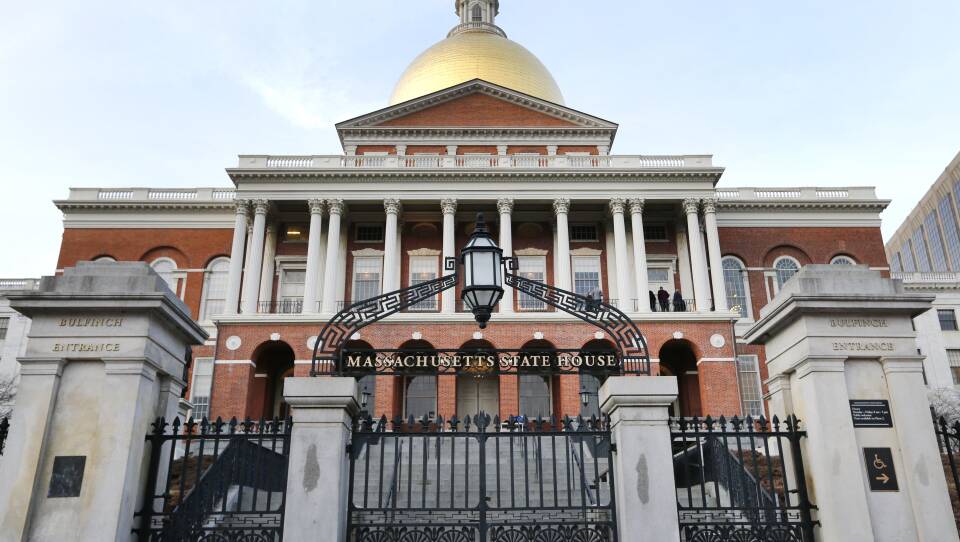Beacon Hill lawmakers this week will attempt to avoid the legislative log jam that gummed up the works last year when the House and Senate failed to pass a compromise budget bill before the July 1 deadline. Leadership hopes that budget writers will deliver the spending bill on time so that energy can shift to several priorities this fall.
After the budget is resolved, Beacon Hill may have the capacity to handle on big issue in July. August is typically a sleepy month. That means the period from Labor Day to Thanksgiving could be the busiest of the year. Here’s what’s on the horizon:
1. Education
How best to allocate funding to public school districts and how to pay for any funding increases in has bedevilled Beacon Hill for years. Municipalities, fed up with what they see as a faulty and outdated funding formula, are beginning tothreaten to sue the state to force change.
Lawmakers, town and city officials, teachers unions and taxpayers are holding their breath until House Education Chair Alice Peisch (D-Wellesley) and her committee draw up a bill to rewrite the formula for the House to debate.
House and Senate negotiations stalled last year over the key tenets of the bill: how much to give towns and cities for low-income students and English language learners, what to pay for transportation costs and how to tackle the increasing costs of school employee health care. They never even got to the part of the debate discussing how the state should pay for infusions of funds into district classrooms or the impact on taxpayers.
Republican. Gov. Charlie Baker has his own plan to invest over time using existing tax revenues. The Senate last year committed to a more expansive and expensive program. Before talks died in the closing hours of the session, the House had supported a more moderate take.
2. Transportation
It may or may not take additional taxes to correct the formula for schools, but nearly all Democrats agree that the state's rotting transportation infrastructure won't be cured with anything less than an infusion of tax dollars.
The recent Red Line derailment fiasco and its dire repair prognosis would have rocketed transportation into this article's top spot if not for the fact that the incident did almost nothing to change Beacon Hill's collective plans for fixing the MBTA and modernizing roadways.
Baker stands by his long-term investment strategy backed by current tax levels. Senate President Karen Spilka has tasked a panel of her members to explore what needs to be fixed, while another team is analyzing which taxes make the most sense to increase to foot the bill. House Speaker Robert DeLeo has a similar process in motion through his Revenue Committee and has been speaking openly about directing more money to the T and other transportation services.
3. Abortion
Two Trump appointment to the U.S. Supreme Court have led to sleepless nights for progressives who fear for the fate of Roe v. Wade, which guarantees a woman’s right to an abortion.
The pendingROE Act is an attempt by leading abortion advocacy groups and some of the Legislature's highest ranking members to ensure that Massachusetts law maintains abortion rights and, in some cases, expands them.
Read more: Here's What Abortion Laws Look Like In Each New England State
The bill would allow abortions after 24 weeks of pregnancy in cases where doctors have diagnosed a fatal birth defect. Causing more headaches for moderate legislators not thrilled about voting on abortion rights is the bill's elimination of the need for parental consent before a minor has an abortion.
4. Housing
Housing is another area where advocates insist on action (in this case, the advocates are Baker and his allies in municipal government) while lawmakers slowly mull over what to do. Baker has been spent two years trying to get lawmakers to vote on his plan to lower the threshold of local approval needed to change zoning restriction that the governor says holds backs a boom in housing construction in the town centers that need to grow in density.
Progressive Democrats have been the only ones to publicly oppose Baker's bill, saying it would do little to ensure enough affordable housing for those not a part of the luxury downtown condo set. Baker says his bill is a good first step, but legislative leaders have indicated they'd prefer to plot out a wide-ranging comprehensive bill sometime this session that could satisfy progressives and the Legislative moderate nexus.
Read more: The Big Squeeze: Why Does It Cost So Much To Live In Massachusetts?
5. Health Care
The failed education bill that croaked at the end of last year's session went to its grave with legislation that Democratic leaders insisted was necessary to keep health care costs from climbing higher and to prevent community hospitals from closing. While the education debate carries on in the State House's back rooms, health care as a topic does not carry the urgency it did just one year ago.





